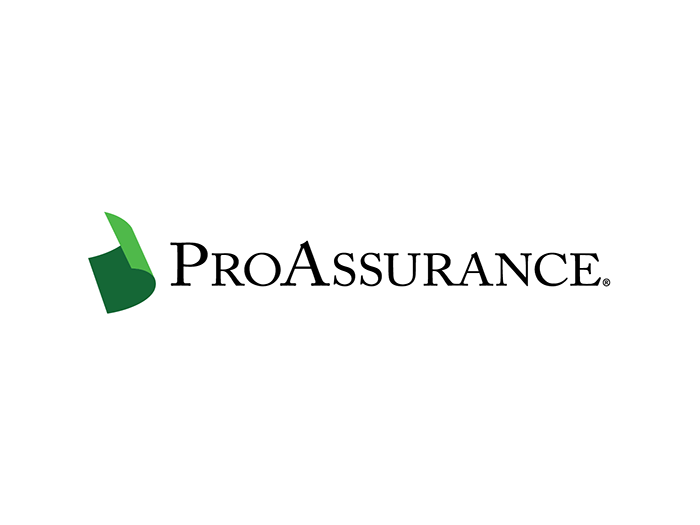IIABA Leadership
Planning for the Future

These are worrying times if you are the owner or principal of an independent agency and broking firm.
A recent survey by Reagan Consulting found that nearly six in 10 (56 percent) agency principals are 55 or older, meaning that most will probably retire in the next 10 years.
But according to the newly elected chairman of the Independent Insurance Agents & Brokers of America (IIABA), David Walker, many of them have no succession plan in place.
One of Walker’s first tasks in his new role will be to help IIABA — the Big “I” — draw up a long-term strategic plan to tackle the issue.
“I think the average agent nationwide is struggling with perpetuation and the process for them to continue their company moving forward,” he said. “It’s really a question of how do we attract and put in place the new talent that will succeed us as the company leaders of the future.”
Walker warned of the consequences of not addressing a succession plan until it’s too late.
“If this succession plan isn’t in place, then in most cases the only solution is to merge or sell the business,” he said. “You can’t wake up two or three years before you’re going to retire and say, ‘Wow, how am I going to monetize this great asset I’ve got and how do I perpetuate the business if I don’t want to sell it?’ ”
The onus, Walker said, is on trade associations like the IIABA to help provide the necessary structuring and financing tools for owners who want their businesses to live on after they step away.
Bob Rusbuldt, president and CEO of the IIABA, described Walker as a “true leader” of the U.S. independent agent and broker community.
“David is incredibly articulate and a great communicator, and he has a real vision of where he wants to take the independent agency and broker system,” he said.
Opportunity and Growth
And where he wants to take the system is to a larger focus on recruiting, doing more to entice young new talent in the door.
“We have got to show the young people of today what a great opportunity it is to be in this industry, particularly if you are an entrepreneur who wants to get out there and prove yourself and be in control of your own destiny — the sky’s the limit,” he said. “But we have got to do a better job of communicating that message and getting them engaged with it.”
As part of that communication effort, Walker is a national faculty member for the CIC Agency Management Institute and The National Alliance Agency Management institutes throughout the country, said Darelle White, senior academic director at The National Alliance for Insurance Education and Research.
“In addition to serving as a CIC faculty member, he currently serves on our Agency Management Institute curriculum advisory committee,” she said. “His commitment to continuing education for himself and his students is a model for other instructors.”
One potential lure for new talent, Walker said, has been the launch of new cutting-edge products, such as cyber liability coverage.
“Right now, we’re only just starting to scratch the surface and figure out the exposures and losses in areas like cyber liability,” he said. “And I believe progressive new products like that are going to be real areas of opportunity for growth for agencies going forward.”
However, one of the challenges for brokers outside of recruitment and retention, Walker said, is getting a handle on — and pricing accordingly — catastrophe losses, which have increased dramatically over the last 10 years to 15 years.
“I think we have got to be wary of the fact that often we tend to be over-sensitive on the pricing side of the business,” he said. “As an industry, I think we have really got to start looking at the credibility of our pricing and not react so much when we are somewhat profitable, but instead look at what we should be doing in a 10-year timeframe, rather than a three-to-five-year one.”
It’s also been a challenging time on the legislative front, Walker said, with brokers waiting anxiously to see whether the Terrorism Risk Insurance Act (TRIA) will be reauthorized by the end of this year.
“One of the main concerns from the agency and broker perspective,” he said, “particularly for license renewals on medium to larger-sized accounts that have happened since the start of this year, is that we don’t know what that reauthorization will actually look like.”
The IIABA is also keen to see the National Association of Registered Agents and Brokers Reform Act (NARAB II) enacted by Congress, said Walker. That law would provide a one-stop licensing system for agents operating outside of their home state, while maintaining state regulatory authority.
Industry Changes
Walker was introduced to insurance broking in 1981 by his father-in-law Richard Bayer, following a brief stint at Guarantee Mutual Life. Bayer had just started his own agency, Hartland Insurance Agency, in Hartland, Mich., and was looking to get it off the ground.
Walker started as a personal lines producer, selling home and auto insurance and swiftly moved up the ranks to president and principal, eventually taking over from his father-in-law, who passed away in 1992.
“I thought I might go back to school to do an advanced degree, but decided to try insurance broking for a couple of years and I’m still experimenting with it 33 years later,” he said.
Today, the agency has four offices nationwide and 37 employees, and it’s still growing, according to Walker.
During the time it’s taken to build the business, Walker has seen some big changes, most notably the advent of technology.
“We no longer have IBM Selectric typewriters and carbon paper — now everything is completely digital,” he said. “Twenty years ago, we had a large filing cabinet room, but now pretty much everything is stored digitally.”
While his own company’s transition to digital has been relatively smooth, Walker said, some brokers are still struggling with technology, and in many cases they are playing catch-up.
“In the 1970s and ’80s, when you wanted to get Special Multi-Peril (SMP) quotes [the forerunner to today’s commercial policy], if you had 10 insurance companies, you had to fill out 10 different applications, submit them in the mail to those companies, wait for their responses and then negotiate the pricing with the underwriter, before going out and selling them the account,” he said.
“If you fast-forward to today, since the advent of ACORD (Association for Cooperative Operations Research and Development), we have got the same problem, except this time instead of, ‘How many SMP applications do you have to fill out?’ it’s, ‘How many websites do you have to go onto to get those quotes?’
“In that respect, we have probably gone a bit backwards.”
Walker, who specializes in commercial insurance, was elected to the IIABA executive committee in September 2009.
Madelyn Flannagan, vice president of agent development, research and education at the IIABA, said that Walker has been active in the organization as well as a business community leader at the state and national level.
“Nationally,” she said, “David Walker is a recognized educator and advocate of the independent agency system whose leadership extends to his participation in continuation education efforts and the classroom.”
Rusbuldt said, “I like to call him the professor because of the great teaching work he does and he’s also a highly sought after speaker, as well as being a very successful business owner in his own right.
“I have known David for almost 20 years now and I can honestly say that he has the perfect skill set to be the chairman of our association.”
Walker also represents the state of Michigan as a board director on the IIABA national board of directors and serves on the IIABA professional liability committee and the IIABA advantage board. Previous to his current role, he was vice-chairman of the IIABA in 2012.
In the meantime though, he’s got plenty on his plate at the IIABA.
For the next 12 months at least, he’ll be focused on the task at hand of helping agencies to secure their future leadership and to unearth the next generation of brokers.








